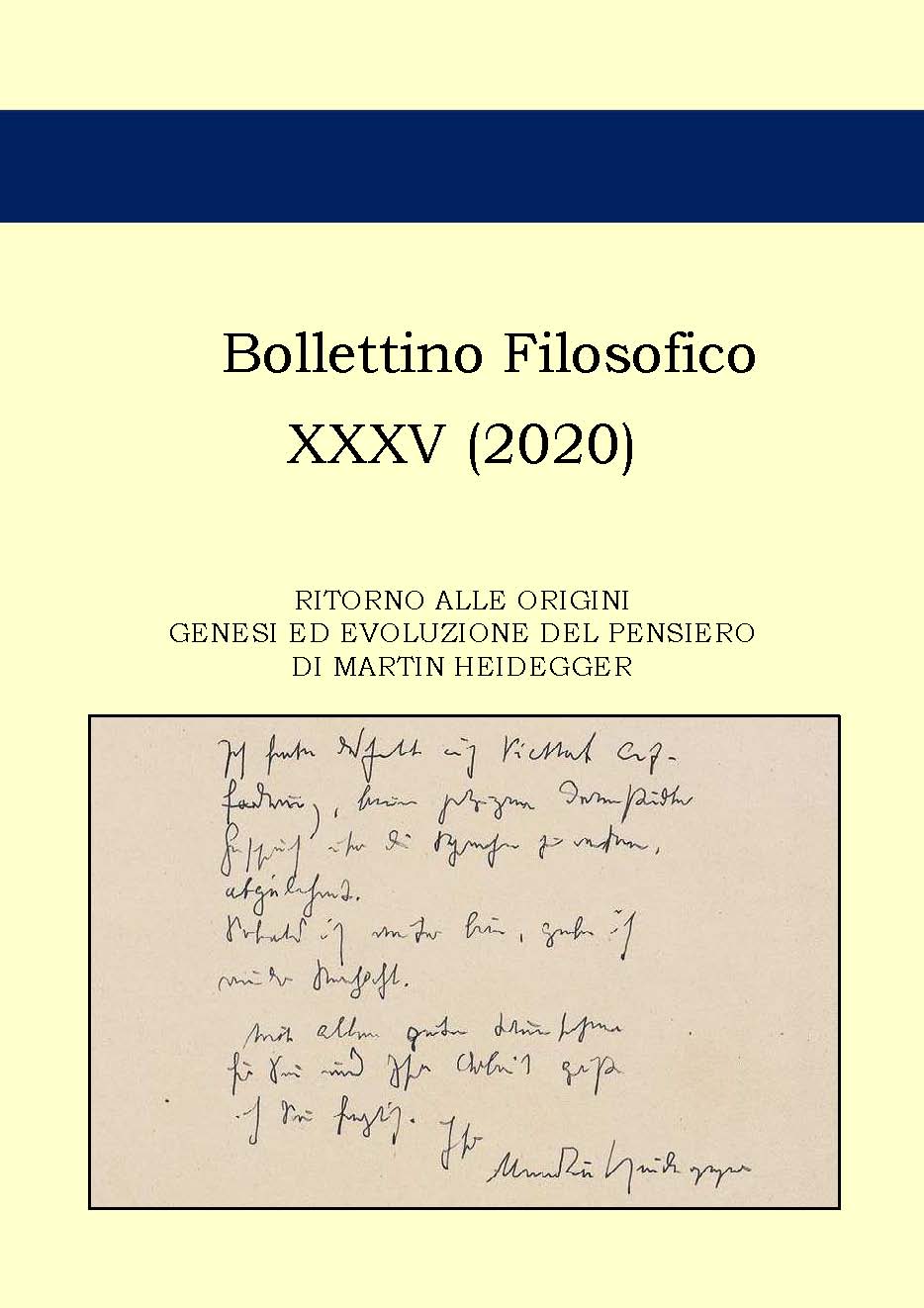Un confronto tra l’ontologia fondamentale di Heidegger e la fenomenologia trascendentale di Husserl
Abstract
This essay examines some theoretical events related to the history of the so-called phenomenological movement, starting with the realistic phenomenology of the object, put forward – as opposed to the alleged idealistic turn of Husserl – by the scholars belonging to the first phenomenological circles of München and Göttingen. The main part of the essay, however, meant to reconstruct the features of Heidegger’s fundamental ontology in relation to the authentic Husserlian transcendental phenomenology, in order to show the meaning of the most important philosophical dispute that arose in the Twentieth century. The essay tries to show that Heidegger’s existential analytic does not assume the traits of ontologism or of an en philosophe anthropology, but remains closely connected to a transcendental level, pursuing however – also through the reference to ontological transcendence – an idealistic-metaphysical ideal far more pronounced than the one found in Husserl’s thought.
Keywords: Constitution, Fundamental Ontology, Intentionality, Reduction, Transcendental Phenomenology
Downloads
Bollettino Filosofico pubblica in internet, ad accesso aperto, con licenza:
|
|
CCPL Creative Commons Attribution |
L'autore conserva il copyright sul suo contributo, consentendo tuttavia a chiunque "di riprodurre, distribuire, comunicare al pubblico, esporre in pubblico, rappresentare, eseguire e recitare l'opera", purché siano correttamente citati l'autore e il titolo della rivista. L’autore, al momento della proposta di pubblicazione, è inoltre tenuto a dichiarare che il contenuto e l’organizzazione dell’opera è originale e non compromette in alcun modo i diritti di terzi, né gli obblighi connessi alla salvaguardia di diritti morali ed economici di altri autori o di altri aventi diritto, sia per testi, immagini, foto, tabelle, sia per altre parti di cui il contributo può essere composto. L’autore dichiara altresì di essere a conoscenza delle sanzioni previste dal codice penale e dalle leggi speciali per l’ipotesi di falsità in atti ed uso di atti falsi, e che pertanto Bollettino Filosofico è esente da qualsiasi responsabilità di qualsivoglia natura, civile, amministrativa o penale, e sarà dall'autore tenuta indenne da qualsiasi richiesta o rivendicazione da parte di terzi.
